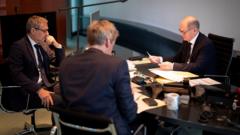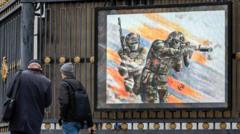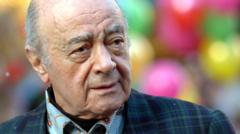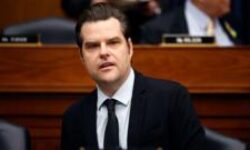
German Chancellor Olaf Scholz and Russian President Vladimir Putin engaged in their first phone call in nearly two years, discussing the ongoing conflict in Ukraine. During the hour-long conversation, Scholz strongly condemned Russia’s actions, particularly highlighting the deployment of North Korean troops as a “grave escalation” of the conflict.
Scholz called on Putin to end the war and withdraw Russian troops from Ukraine, emphasizing Germany’s unwavering support for Ukraine’s defensive struggle. He specifically condemned Russian air strikes on civilian infrastructure and urged Moscow to negotiate a “fair and lasting peace” with Kyiv.
Prior to the call, Scholz spoke with Ukrainian President Volodymyr Zelensky, and planned to brief him afterward about the conversation. Zelensky described the dialogue as a “Pandora’s box” that potentially weakens Putin’s international isolation.
From the Russian perspective, Putin claimed that the current crisis was a direct result of NATO’s “aggressive policy” and alleged attempts to create an “anti-Russian bridgehead” in Ukrainian territory. The Kremlin insisted that any potential peace agreement must be based on the “new territorial realities” – meaning the territories Russia has occupied since 2022.
The call marks a significant diplomatic moment, given the complete breakdown of trust between Germany and Russia following Russia’s full-scale invasion of Ukraine. Historically, Germany had attempted to maintain peace through trade and energy connections, a strategy that collapsed overnight with the invasion.
Currently, Germany is the second-largest donor of military and financial aid to Ukraine after the United States. However, the political landscape is shifting, with upcoming elections in February creating pressure for peace negotiations.
The far-right AfD and the new far-left BSW parties are criticizing the government, arguing that not enough is being done to broker a peace deal. Scholz’s political position is precarious, with his governing coalition having collapsed and his party performing poorly in polls.
The Kremlin described the conversation as a “detailed and frank exchange of opinions,” noting that the dialogue itself was positive. Putin reportedly told Scholz that Russian-German relations had suffered “unprecedented degradation” due to Germany’s “unfriendly course.”
There is speculation that Scholz might also engage with Chinese President Xi Jinping at the upcoming G20 meeting in Rio de Janeiro, potentially exploring additional diplomatic avenues for resolving the conflict.
The last time Scholz and Putin spoke was in December 2022, shortly before the full-scale invasion. At that time, Putin had assured Scholz that Russia did not intend to invade Ukraine – a promise that was quickly broken.
With Germany experiencing significant political and economic challenges due to the war, any potential progress towards peace could be politically advantageous for Scholz and his administration.









